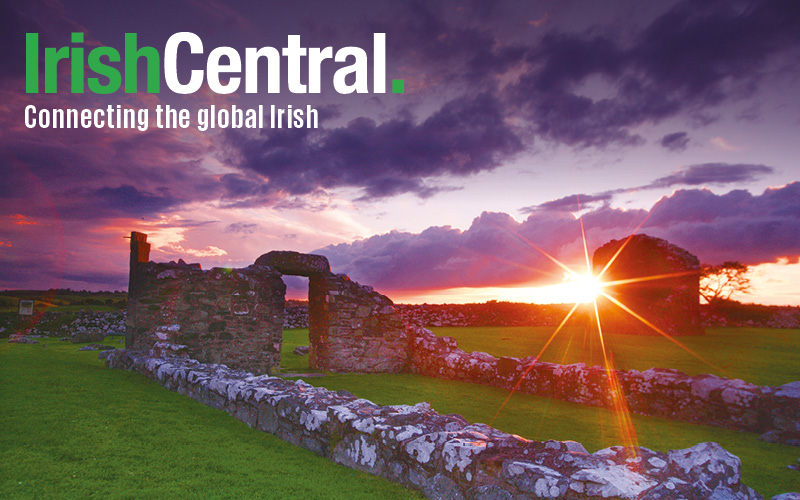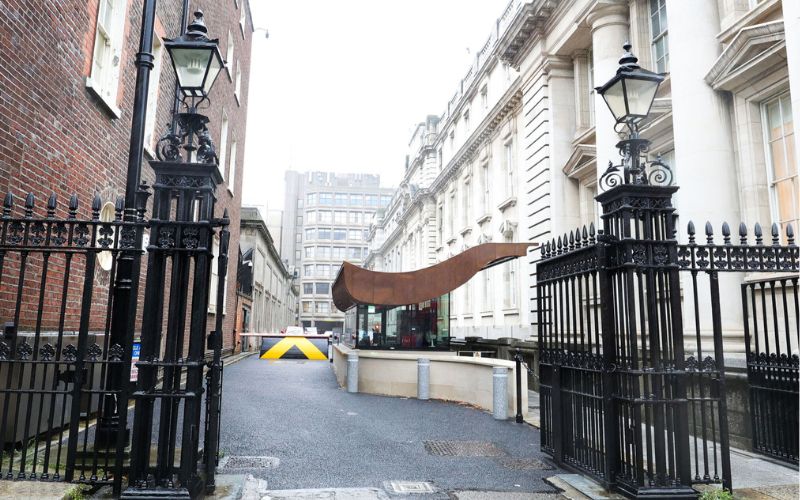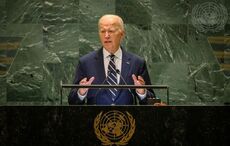IT seems that I can't take a holiday at all. I'm off for a couple of weeks and what happens? The whole country goes down the toilet, that's what.
Two weeks ago, as I predicted, a majority of Irish people voted against the Lisbon Treaty, the proposed agreement on new structures for the enlarged 27-nation European Union (EU).
And as if that wasn't enough, last week the full depth of the collapse of the Irish economy was revealed in a major economic report, and political and business leaders began openly using the R-word (recession) for the first time.
In fact the two events are related. Before the Lisbon vote there was a lot of scare mongering here about abortion and gay marriage and something even more horrifying ... higher taxation! The idea was sown in the minds of voters that all of this would be forced on us.
We would be swallowed up in the new Europe, which would over-rule our courts. We would lose our Irish way of life, as well as our full time European commissioner.
Even though all the political parties, the business bosses, the union leaders and even the churches said that these fears were unfounded, people voted against. The whole thing was too confusing.
If You Don't Know, Vote No. And they did, in sufficient numbers to sink the referendum.
In the aftermath, the experts claimed that many people had been confused and fearful, that they had voted No because the political parties had failed to explain what was involved in clear and simple terms. And there is some truth in that.
But the real reason the referendum was rejected had little to do with irrational fears or with a failure by the political parties here to explain why the proposed changes in the European structures were desirable, even for small countries like Ireland.
In the last column I wrote for this paper before going on holiday, I correctly identified what the problem was and warned about what might happen in the vote on June 12. I wrote about an unemployed decorator I had heard on the radio explaining why he was going to vote No.
It was because of the immigrants, he had said. There were so many Polish and Latvian painters and carpenters and plumbers in the country working for half the minimum wage, he could not get a job.
He said he would never work again, thanks to the enlarged European Union. So he was voting No.
In politically correct Ireland, immigration was never mentioned by either side during the campaign of course. But in the aftermath of the referendum, the EU itself did detailed research among Irish voters to find out why so many had voted No.
And guess what? One of the main issues to emerge was immigration.
It's not that Irish people are any more racist than anyone else. But many people here dislike the scale of immigration we have seen in Ireland since EU enlargement, and they correctly blame the EU for this.
They dislike the effect it is having on Irish society, and they worry about the competition for jobs, particularly since we are now faced with a major economic downturn. So they voted No in the referendum precisely because the treaty was designed to bring Europe even closer together.
In doing so, they were not being irrational. In fact they were being perfectly rational, in spite of the patronizing guff coming from the "experts" here.
And it is this reality, that the No vote was not irrational, that makes the politicians here very cautious about having a rerun of the referendum any time soon. As I said in my last column, the enlargement of the EU is causing real pain for many ordinary Irish people, no matter how wonderful the idea of a new unified Europe from Connemara to the Urals may seem in theory.
The fact is that, thanks to the EU, in the past five years Ireland has had to absorb more immigrants in proportion to our population than any other country not only in Europe, but in the 30 countries of the OECD, including the U.S.
In fact proportionally we have taken in several times as many immigrants as the U.S. over the past five years, and you all know about the stresses immigration is causing over there. That may have been okay, particularly for employers, when the Irish economy was booming ... but what happens now?
And the economic picture now is even worse than when I went on holiday three weeks ago. There has been a significant collapse in confidence and a growing pessimism even over that short time span.
Much of this has stemmed from another major report from the Economic and Social Research Institute (ESRI), the most respected think tank in Ireland. Unlike the economists employed by the banks or real estate companies here who have a vested interest in talking up the economy, the ESRI economists tell it like it is. And their report confirmed the worst fears we had about the economy.
According to the ESRI, Ireland is now in the grip of an economic recession for the first time since 1983, and the implications include a return to large scale net emigration from Ireland for the first time since the eighties.
Unemployment is set to pass the 7% mark by the end of this year. And tax revenues coming in to the government will fall very sharply, with implications for state borrowing and cutbacks in state services.
Exactly how bad the situation is will be known on Wednesday of this week when the half yearly figures for tax revenues are published. The figures are likely to make grim reading, and proposals for a pay freeze for state workers and for cutbacks in the government's planned capital spending program are already being put forward.
From the noises already being made by the government, it seems that state borrowing will increase but that the EU borrowing limit will not be breached. The new Minister for Finance Brian Lenihan has said that it would be a mistake to break the borrowing limit of 3% to pay for day-to-day spending.
What this means is that there are tough times immediately ahead in Ireland. Already the accusations are flying that the government wasted the economic boom, and there is a specific reference to this in the economic report.
Certainly it now seems clear that the way former Taoiseach (Prime Minister) Bertie Ahern's government continued to feed the boom in recent years, largely on the back of the unsustainable property boom, was misguided. With the collapse of the property market, the massive public finance surplus on which the government based its promised national development plan will have vanished by next year.
Not only that, but we will be struggling to pay for basic services for our new enlarged population. And on top of that, the ESRI says, emigration will be back in a big way with net emigration exceeding 20,000 a year over the next few years.
This latest quarterly economic report from the ESRI pulls no punches, deliberately using the recession word and predicting that this year the economy will contract by 0.4%. This is in marked contrast to recent predictions from some other economists who until recently were still saying that there would be 1% or 2% growth in the Irish economy this year.
Consumer spending here is going to be hit, the ESRI says, with after tax income down by 2.6% this year, the first annual reduction since 1983. And that will feed into the economy, with declining consumption. The global slowdown will also hit our exports and the building slump will continue here, drastically affecting unemployment numbers and tax revenues.
Coming back to the Lisbon Treaty, it is in that depressed context that the government may have to attempt a rerun of the referendum next year, which is not a very inviting prospect.
The fact is, as Taoiseach Brian Cowen has said, there is no future for us outside of the EU. That is simply unthinkable. Any attempt to "go it alone" would make the future prospects for the Irish economy even worse.
So we have to find a solution to the anti-EU feeling that exists here and that goes far beyond dealing with so-called irrational fears. If I were advising the government I would be telling them to deal with the immigration issue.
Ireland was one of only three countries (the others were the U.K. and Sweden) which allowed unrestricted access to immigrant workers from the East European states when the EU was enlarged in 2004 to the point where it now has 27 member states. That served the interests of Irish business (construction, hotels, etc.) with a big pool of cheap labor. But what did it do for ordinary Irish people?
I am not saying that all immigration from other EU states needs to be stopped. But it does need to be managed, and it needs to be linked to the level of employment and state services available here. And the government needs to be open and honest about this, to reflect the way ordinary people here feel.
If they do that - and deal with some of the scare stories that were spread about the EU - then another referendum might have a chance. And the recovery of the Irish economy might not take too long. But one way or the other, it's going to be tough for the next year or two.
Did you ever get the feeling you should have stayed on holiday?




Comments